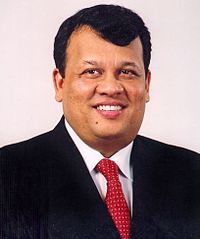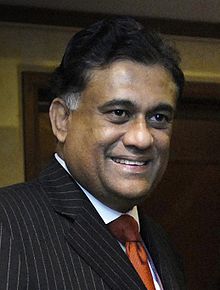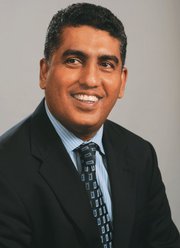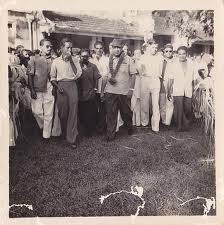Ranil Wickremasinghe’s scorecard… how does it read?
Assessment of performance of any officer/official or employee is of great significance not only to the body or company or any corporation or department or ministry that employs the officer/official; it carries even greater weight and consequence for the officer
whose performance is assessed. One of the main components of the assessment is the periodical intervals at which performance is assessed or reviewed. This same tenet applies to any political party or any other organization whose main aim is to derive the maximum output from its employees or workers.
However, in each of these cases, the person whose performance is assessed or reviewed is brought before a panel of judges who consist of the CEO and other senior line managers or, the shareholders of a company in the instance of the subject being the chairperson or the chief executive officer. This is the norm that is being practiced at most progressive places of work. Although, the details may differ, the fundamentals remain the same whatever the organization is.
Eighteen long years
Eighteen years is a long period in office and that is exactly how long Ranil Wickremasinghe has been the “leader” of the United National Party. The United National Party has had a fairly decent way in which the party leadership has changed hands; either for natural causes such as death of the office holder as in the cases of D S Senanayake, Dudley Senanayake and R Premadasa or a peaceful transfer of power as in the case of J R Jayewardene to R Premadasa.
Nevertheless, one exception to this was when Gamini Dissanayake challenged Ranil Wickremasinghe for the Leader of the Opposition
position in 1994 after the UNP was ousted from power in the wake of seventeen long years in office. This is most aptly called the “GD option”, yet to be exercised by the would-be-successors to Ranil Wickremasinghe in the present context.
The baggage Gamini carried
The “GD option” is not merely confined to a challenge issued to the incumbent; it also consists of going through the full process of testing that challenge by a vote among the constituents selected for that particular vote. When Gamini Dissanayake challenged Ranil Wickramasinghe, the constituency was the UNP Parliamentary Group. The surrounding scenario was quite different in that Gamini carried the baggage of being sacked by the Party for challenging the then President, R Premadasa, by way of an impeachment motion and a significant number of old UNPers loved to hate him for what he had done with Lalith Athulathmudali, G M Premachandra and others, bringing the Party to disrepute among the masses, thereby causing the ultimate defeat at the Parliamentary elections in 1994.
Firm ground
But Gamini D had some firm grounds to stand on: he won his district Kandy most handsomely. Out of 13 electorates the UNP won 11, conceding only Udu Nuwara and Yati Nuwara to the PA, the Kandy district result being, UNP-52.3% to PA-46.4%. As a matter of fact, only Central Province was secured by the Party in the entire country. So when Gamini Dissanayake came down to Colombo, he came as a “winner” not as a loser like Ranil Wickremasinghe who lost Colombo district, 41.8% to 50.9%.
Renegade child vs docile loyalist
The collective body of the UNP Parliamentarians, despite having some reservations about Gamini Dissanayake, chose him as their next “leader”. The UNP Parliamentarians preferred the “renegade child” to a docile loyalist. Ranil Wickramasinghe failed in his first challenge.
Ranil Wickramasinghe’s Scorecard of vote % and number of MPs
| Year |
UNP |
PA/UPFA |
||
| % Votes | No. of MPs | % Votes | No. of MPs | |
|
1994 |
45 |
81 |
50 |
91 |
|
2000 |
40 |
77 |
45 |
94 |
|
2001 |
45 |
92 |
37 |
66+13 |
|
2004 |
38 |
71 |
46 |
92 |
|
2010 |
29 |
51 |
60 |
127 |
UNP vote bank has shrunk
The UNP vote bank has shrunk from a respectable 45% to a dismal 29% in sixteen years from 1994 to 2010.
During the same period, the number of elected members of parliament has dwindled from 81 to 51. However, the present Parliament
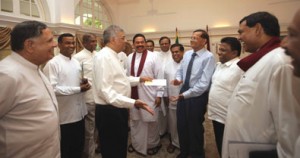
Ranil greets Prof G.L. Peiris across the isles as President Mahinda Rajapakse looks on. Photo taken from www.sundayleader.lk
has only 43 UNP MPs, solely due to defections to the government side from 2010 to date. If this is “satisfactory”, I dread to think as to what is “not-satisfactory”!
Crossing over
No less than sixty one (61) UNP parliamentarians have crossed over from the Party to the PA/UPFA, among whom are UNP stalwarts such as Wijepala Mendis, Dr. Sarath Amunugama, Professor G L Peiris, Keheliya Rambukwella, Mahinda Samarasinghe, Rohitha Bogollagama, Lakshman Seneviratne and Johnston Fernando.
The tale does not end here. The United National Party, for the first time in its storied history, failed to field a candidate under its own banner in the 2010 Presidential elections. In every Provincial Council and Pradesheeya Sabha Election, the vote bank of the UNP declined progressively, to an alarming 22% in the last local government lections held in July 2011.
Non attendance
The Leader has not attended a single meeting of the local government representatives where there is room and space for free expression of ideas and opinions. (The only meetings he has attended are the ones which were held to swear-in the elected members)
MR rescues RW
On the contrary, when these local government representatives were called for a meeting by the Karu/Sajith group, Ranil
Wickremasinghe sought the help of the government’s repressive machinery to curb that meeting. The very gates of the Sirikotha were closed to the Party grassroots’ representatives-Mahinda to the rescue of Ranil! That again is now part of that storied history of the United National Party. What is more laughable?
Who sits in judgment of this record? Ranil Wickramasinghe is the official leader of the United National Party. When Dudley Senanayake lost the elections in 1970, he came down to Colombo from Dedigama the very night of the elections and phoned his life-long friend J R Jayewardene the following morning and asked him (JRJ) to be the Leader of the Opposition, whilst retaining the Party leadership. However, Dudley was a darling of the masses. Ranil is not. How does the great scorer who chronicles the game and its players write his verdict?
Grantland Rice, in Alumnus Football:Only the Brave and Other Poems wrote:
For when the One Great Scorer comes,To write against your name, He marks-not that you won or lost-But how you played the game.
Battle on your own turf
Leave alone the Leader, how did the followers respond, not to the Leader, but to the whole tragic saga of the UNP decay? Are they not equally responsible for the quagmire that their Party is in today? A couple of weeks ago, in an editorial of a leading weekly newspaper in Sri Lanka, the most sensible question was posed: Have you no shame, Ranil? I will para-phrase this question: Have you no shame UNPers, to endure this tragi-comedy of Ranil Wickremasinghe and your own impotence? Don’t give the easy answer: there is no mechanism by which you can oust the Leader. The Leader is well entrenched in the cozy comforts of the Working Committee. Draw him out of that comfort zone. Fight your battle on your turf, among the masses, among the Parliamentarians. That again is leadership. The people of Tunisia, of Egypt and of Libya did not offer those lame excuses. Yet they were victorious. More often than not, it is harder to do the right thing.
The great scorer may not mark that you won or lost; but he will certainly pen a very sad commentary about how you played the game.
